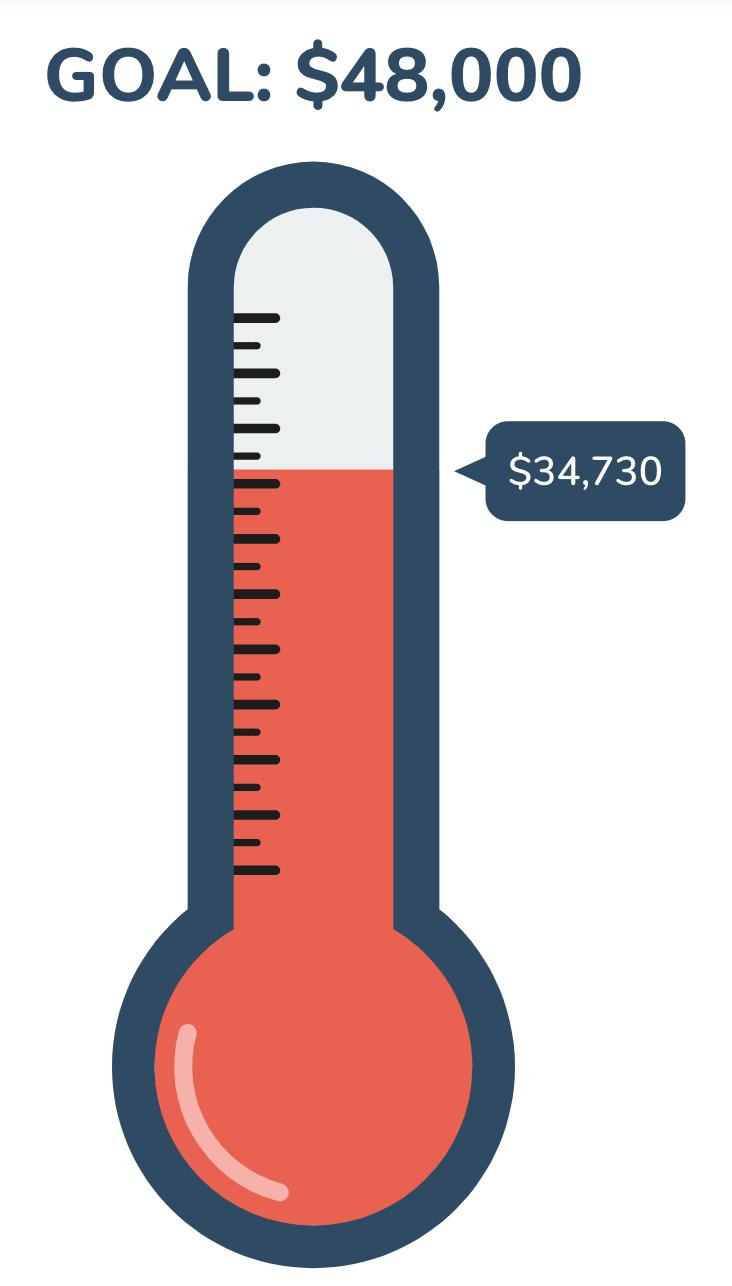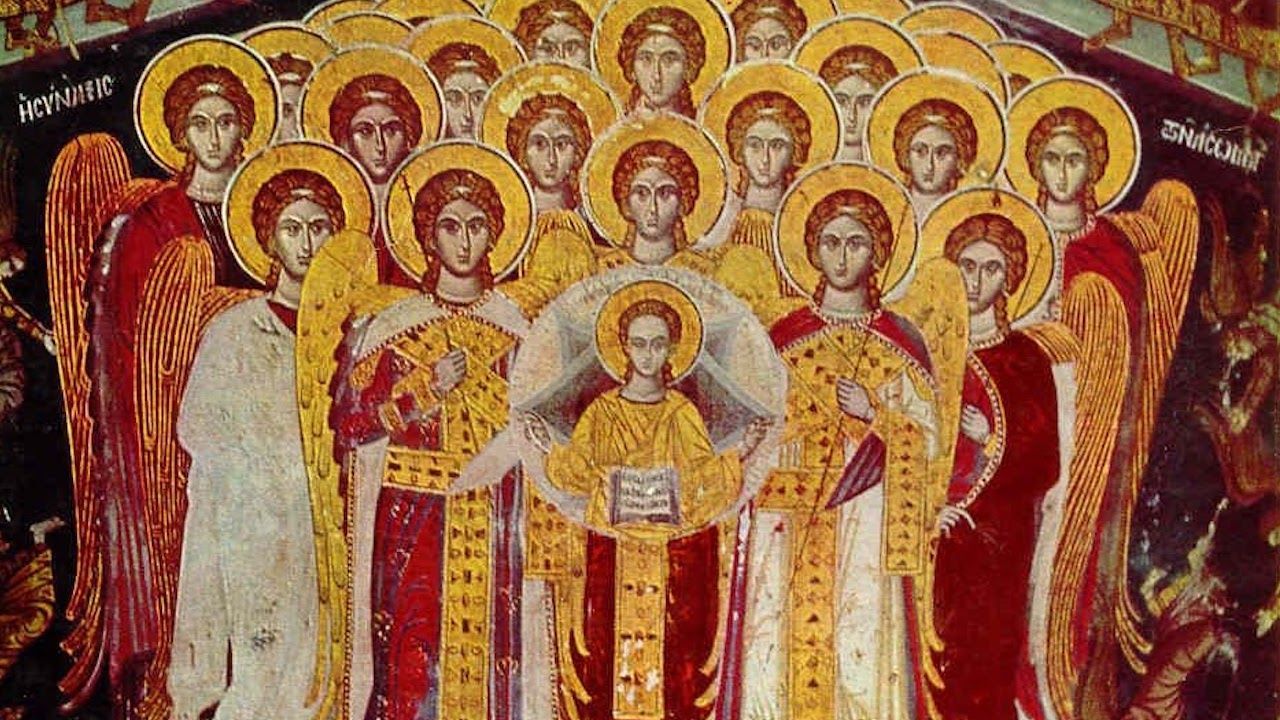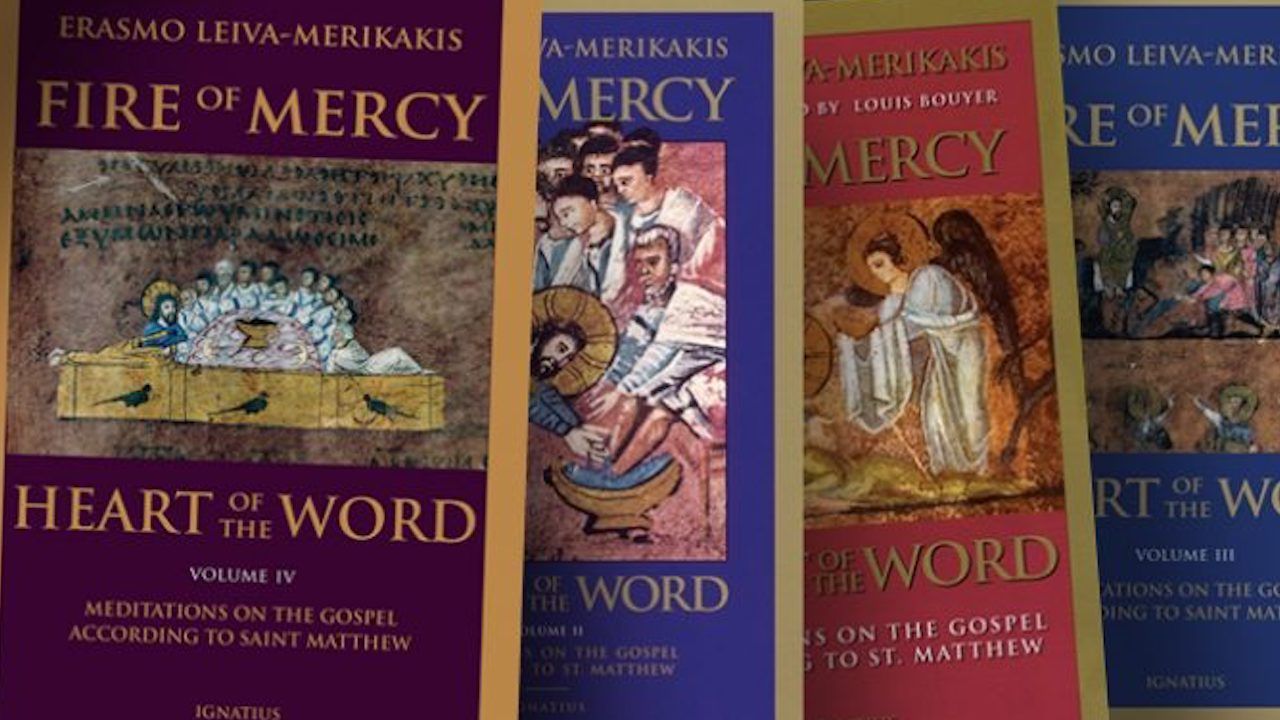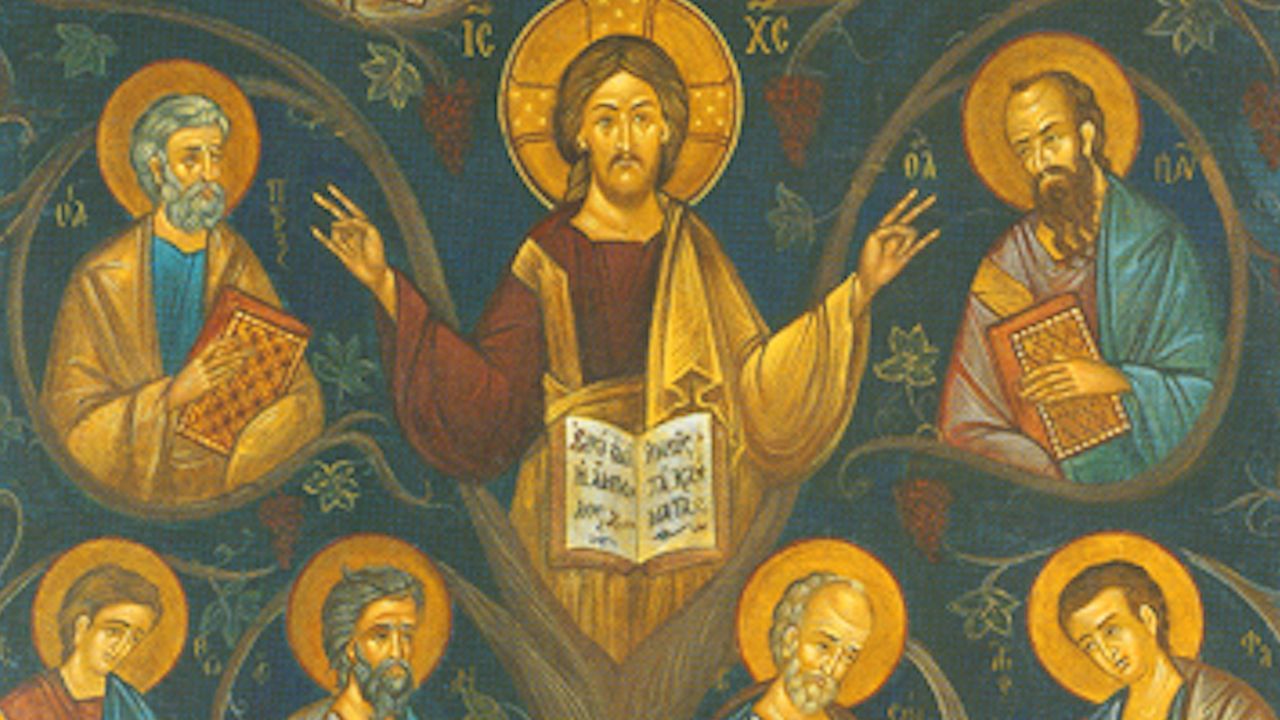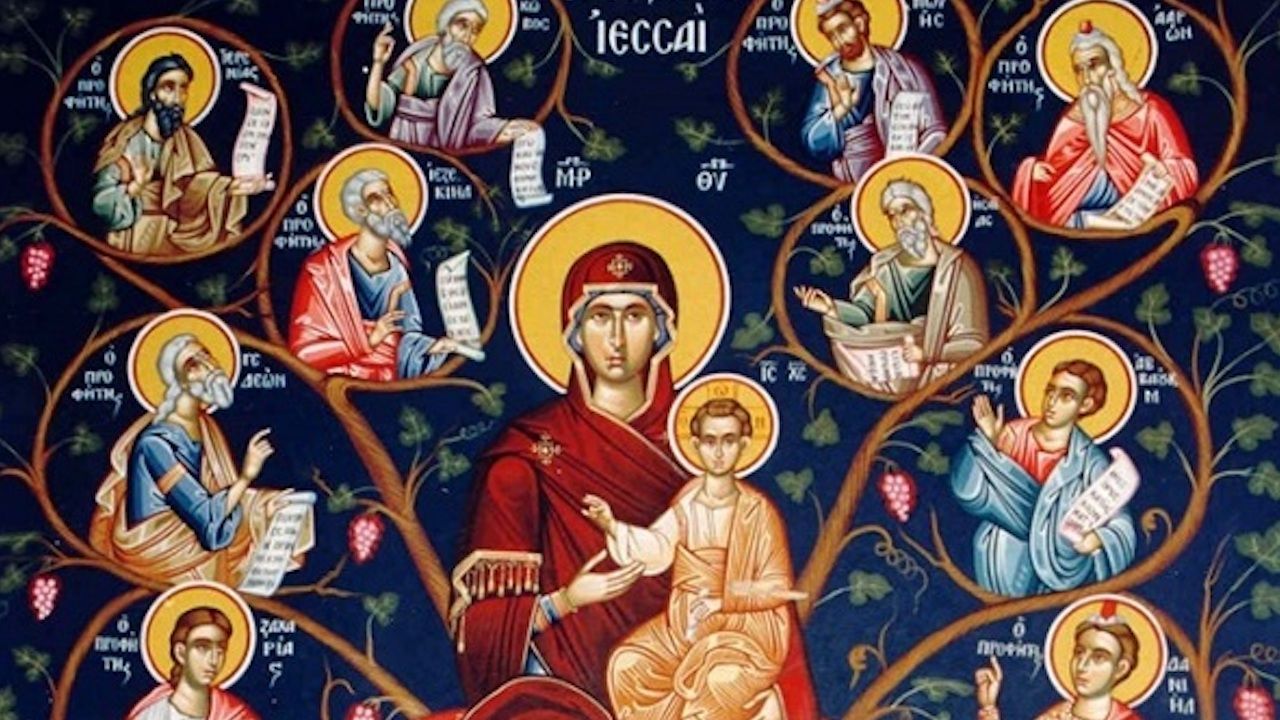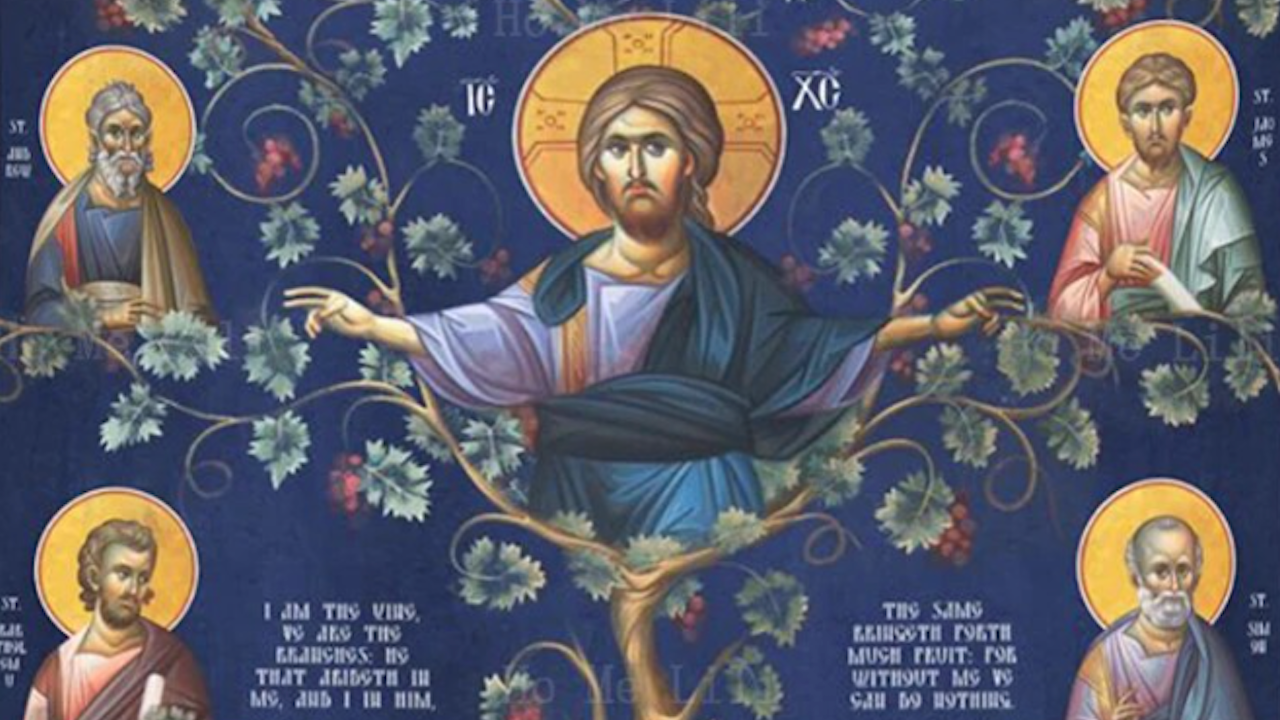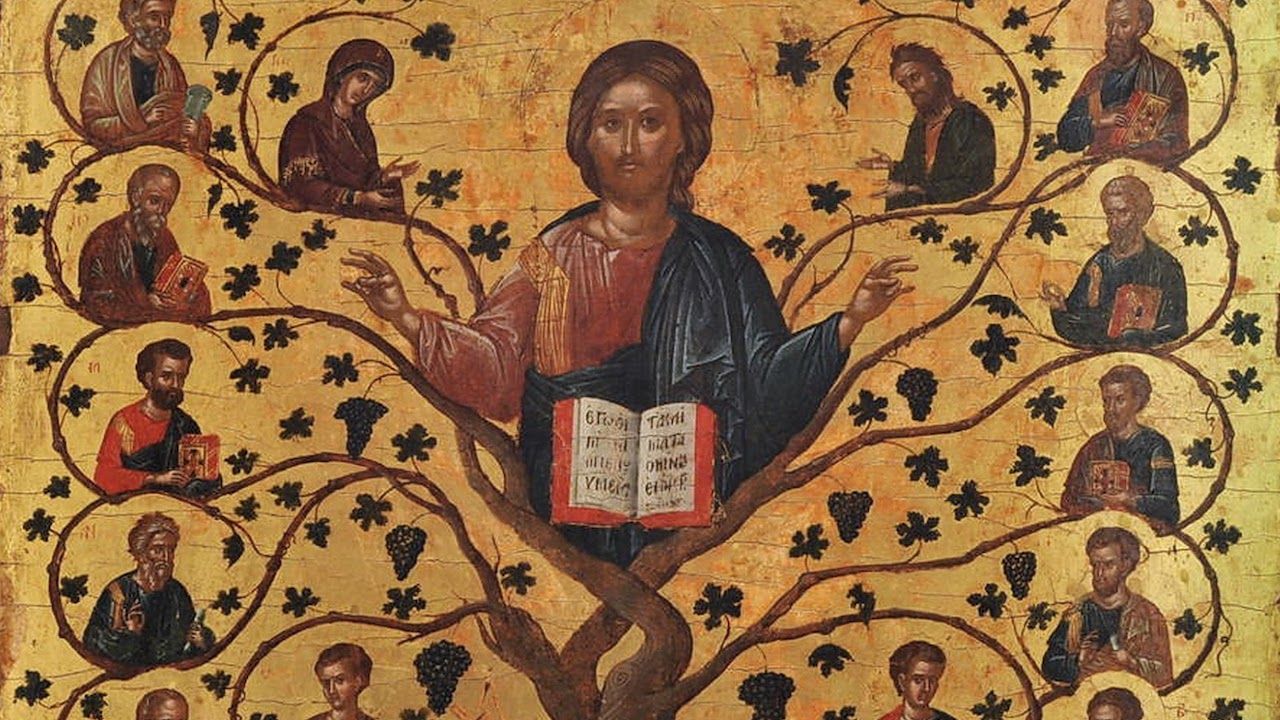The Birth of the New Adam, Our Renewal
by Fr Calinic Berger
Feast of St Philip, Metropolitan of Moscow and All Russia
Anno Domini 2021, January 9
“God became man so that man might become god,” wrote St. Irenaeus in the second century. His saying has become a precept of the Orthodox Faith repeated by many Fathers. Through His birth, the Son of God “renewed nature”—brought it back to what it was meant to be. More than this, He gave human nature something it could have never obtained for itself: His own Divine Presence accessible from within it. The patristic axiom does not say, “God became man so that man might become man again,” but might “become god”—that is, one with the God in whose image we were created.
In fact, “becoming god” is engrained in human nature. It is both our original calling (Gen. 1:27) and our original sin (Gen. 3:5). Man can never be satisfied with the things of the earth or with anything that he has “obtained.” He will always seek for more, always seek to transcend, always strive for the infinite. Only God can ultimately satisfy man. The fall of Adam consisted of his misuse of his human capacity for infinite growth, for instead of seeking God and uniting with Him, Adam made himself and the things of the earth his goal. These things are finite and taken by themselves cannot satisfy man and will ultimately only lead to boredom.
The Son of God becomes man in order to redirect our human powers to God and thereby enable our divinely ordained destiny. Christ takes up once again the calling of Adam and so He is called the “second Adam” (1 Cor. 15:45ff.). He is both the restoration and the fulfillment, the source and the goal, of human life. This is why everything in His birth, life and death, parallels what happened in the life of the first Adam. Christ as the new Adam “undoes” what Adam did and fulfills what he did not do.
Seen from this perspective, many details in the birth of the Son of God begin to make perfect sense. Christ the New Adam was not born in a palace but in a cave of the earth, the earth from which the old Adam was created. The New Adam is born among animals in a manger, restoring the concord between man and beast that the first Adam was given (Gen. 2:19). The New Adam is born with angelic praise, as was the first Adam (Job 38:7), exhibiting the primordial harmony between the human and angelic worlds. The New Adam is born amidst both shepherds and kings, the rich and poor together, to show the fundamental brotherhood of all men.
Above all, the new Adam is born beyond all human egocentricity, in a manner which involves no self-interest and transcends natural law. Rather, His birth was the result of total obedience and self-sacrifice to the will of God. He was born from the freely offered obedience of the Virgin Mary. The first Adam had no human father and neither does the new Adam. Christ is born with Adam’s human nature, and hence He is subject to pain, weakness, etc., yet He received His human nature without any sin and remained free from sin even unto the death on the Cross. Christ’s birth was a result of free obedience with no necessity, and so was His death. His birth free of corruption ensured that His death was wholly voluntary and therefore it freed human nature from death. By being freed from corruption and death it is thereby fully renewed. Christ then offers His renewed and deified Body and Blood, permeated with God’s power, to each one of us in the Eucharist.
The birth of the Son of God is an occasion for reflection on our own rebirth and renewal. Through our baptism and our devotion to Christ, each of us is called to continue God’s incarnate presence among us, to “put on Christ” (Gal. 3:27). Each one of us has a potential from our baptism that we must labor to actualize in our lives. The “old man” in each of us must die, such that the “new man” might be free to live and grow (2 Cor. 5:17). That is why the Orthodox Church calls us to fast in the season before Christmas. Through this we seek to replace the unrestrained eating of the old Adam in Paradise with the self-controlled devotion to God of the New Adam. To prepare for Christmas in this manner is much different than the way it is done in contemporary society. We are also called to celebrate Christmas differently. St. Gregory the Theologian put it this way: “Therefore let us keep the Feast, not after the manner of a heathen festival, but in a godly manner; not after the way of the world, but in a fashion above the world; not as our own, but as belonging to the Master; not as of weakness, but as of healing; not as of creation, but as of re-creation.” This is the challenge of Christmas: to be reborn. It is a season of fasting, of the redirection of our human powers to God and of quietness of soul. Yet it is only in the quiet of the soul—in the quiet of the Bethlehem midnight—that angelic voices are heard, mysteries seen and worshippers are able to kneel before the Son of God. Let our Christmas be like the first Christmas and thereby an occasion for healing and spiritual renewal. Those who keep it thus have the promise of Christmas joy.
*Originally published in Hieromonk Calinic (Berger), Challenges of Orthodox Thought and Life: Reflections on Christian Foundations and Living Traditions (Jackson, MI: Romanian Orthodox Episcopate of America, 2011), 163-165. Available for purchase at Eighth Day Books.
In an isolating secularized culture where the Church's voice is muffled through her many divisions, Christians need all the help they can get to strengthen their faith in God and love toward their neighbor. Eighth Day Institute offers hope to all Christians through our adherence to the Nicene faith, our ecumenical dialogues of love and truth, and our many events and publications to strengthen faith, grow in wisdom, and foster Christian friendships of love. Will you join us in our efforts to renew soul & city? Donate today and join the community of Eighth Day Members who are working together to renew culture through faith & learning.
April 2024
31
1
5pm Ray Anderson Theological Task Force
2
3
6am "Ironmen"
4
4pm Cappadocian Society
5
7:30am Prayer Group - Hill
6
7
8
5pm Ray Anderson Theological Task Force
9
10
6am "Ironmen"
11
4pm Cappadocian Society
7pm Hall of Men
12
7:30am Prayer Group - Hill
6pm Chesterton Society
13
14
15
5pm Ray Anderson Theological Task Force
16
4pm Preaching Colloquium
6:30pm Sisters of Sophia
17
6am "Ironmen"
18
4pm Cappadocian Society
19
7:30am Prayer Group - Hill
20
21
22
5pm Ray Anderson Theological Task Force
23
24
6am "Ironmen"
25
4pm Cappadocian Society
7pm Hall of Men
26
7:30am Prayer Group - Hill
27
7am "Ironmen"
28
29
5pm Ray Anderson Theological Task Force
30
1
6am "Ironmen"
2
4pm Cappadocian Society
3
7:30am Prayer Group - Hill
4
Location
Eighth Day Institute at The Ladder
2836 E. Douglas Ave.
Wichita, KS 67214
©Eighth Day Institute 2019

